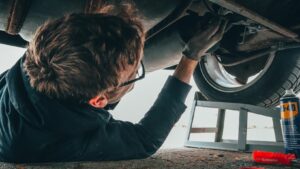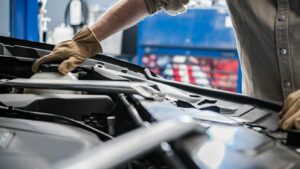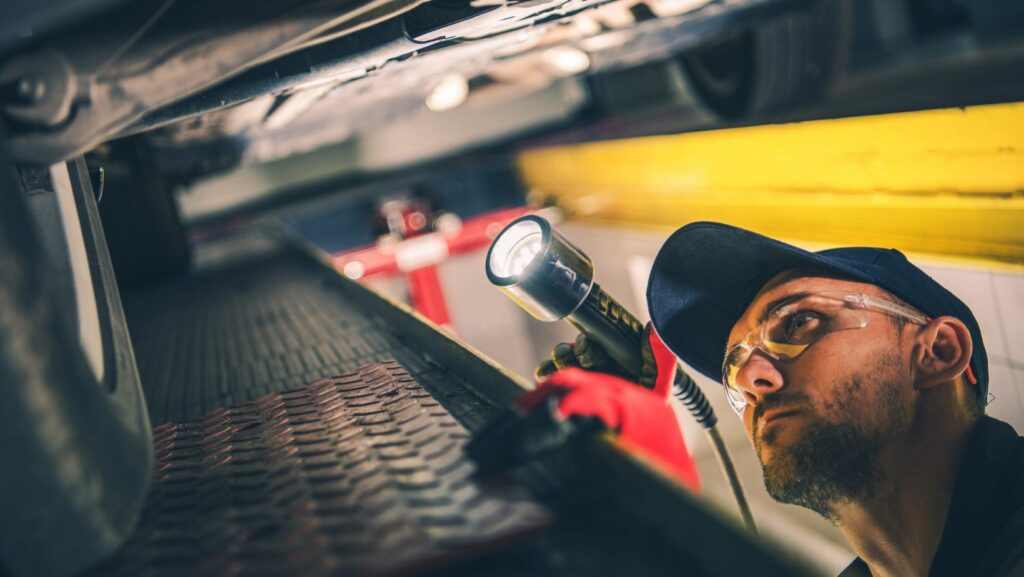Regular Car Maintenance
- Regular Maintenance is Essential: Consistent maintenance enhances vehicle safety, reliability, and longevity, preventing costly repairs and unexpected breakdowns.
- Key Maintenance Tasks: Important tasks include routine oil changes, tire rotations, brake inspections, and monitoring fluid levels to ensure optimal vehicle performance.
- Safety First: Performing regular checks on brakes, lights, and tires significantly improves road safety and reduces the risk of accidents.
- Follow a Maintenance Schedule: A structured schedule promotes vehicle health, with daily checks for critical issues and monthly inspections for wear and tear.
- Debunking Myths: New cars still require maintenance, and routine tasks are generally affordable compared to the potential costs of neglect.
Taking care of a car goes beyond just filling up the gas tank. Regular car maintenance is crucial for ensuring safety, reliability, and longevity. Neglecting routine checks can lead to costly repairs and unexpected breakdowns, which can be frustrating and inconvenient.
By staying on top of maintenance tasks, drivers can enhance their vehicle’s performance and efficiency. Simple actions like oil changes, tire rotations, and brake inspections can make a significant difference. Understanding the importance of these practices not only saves money but also keeps drivers and passengers safe on the road.
Importance Of Regular Car Maintenance
Regular car maintenance serves as a fundamental practice to extend vehicle longevity and enhance safety. Committing to scheduled maintenance can lead to significant benefits for both the vehicle and its owner.
Enhancing Vehicle Lifespan
 Enhancing vehicle lifespan relies on consistent maintenance practices. Routine services, such as oil changes every 3,000 to 5,000 miles, prevent engine wear and maintain optimal performance. Regular inspections of belts and hoses help identify wear and potential failures before they occur.
Enhancing vehicle lifespan relies on consistent maintenance practices. Routine services, such as oil changes every 3,000 to 5,000 miles, prevent engine wear and maintain optimal performance. Regular inspections of belts and hoses help identify wear and potential failures before they occur.
Maintaining proper tire pressure and checking tread depth improve fuel efficiency and prolong tire life. Following the manufacturer’s maintenance schedule ensures that critical components receive timely attention. Keeping records of maintenance also aids in maintaining the vehicle’s resale value.
Ensuring Safety On The Road
Ensuring safety on the road is a primary reason for regular maintenance. Routine brake inspections can catch wear and corrosion, preventing brake failure. Checking headlights and taillights guarantees visibility during night driving or adverse weather. Maintaining windshield wipers and fluid improves visibility by ensuring clear sightlines. Regular tire rotations and alignments enhance handling and traction, reducing the risk of accidents. Addressing potential issues during scheduled maintenance promotes peace of mind for drivers, creating a safer driving environment for all road users.
Key Components Of Regular Car Maintenance
Regular car maintenance involves critical checks that keep the vehicle performing optimally and safe for driving. Key components include engine checks, tire maintenance, and brake system inspections.
Engine Checks
Engine checks encompass monitoring oil levels, coolant levels, and checking for leaks. Regular oil changes, typically every 3,000 to 5,000 miles, ensure proper lubrication and prevent engine wear. Monitoring coolant levels prevents overheating, while inspecting belts and hoses for cracks or wear can avoid breakdowns. Keeping the air filter clean enhances fuel efficiency, ensuring the engine runs smoothly.
Tire Maintenance
Tire maintenance includes assessing tire pressure, tread depth, and alignment. Maintaining proper tire pressure, usually around 30-35 PSI, maximizes fuel efficiency and improves handling. Checking tread depth at least once a month ensures adequate grip, particularly in wet conditions. Regular tire rotations every 5,000 to 7,500 miles promote even wear, while alignment checks help prevent premature tire degradation.
Brake System Inspection
Brake system inspection includes examining brake pads, rotors, and fluid levels. Replacing worn brake pads enhances stopping power and safety. Regularly checking brake fluid levels ensures the system operates correctly and helps identify possible leaks. A thorough inspection of rotors for wear and surface irregularities maintains optimal braking performance, contributing to overall vehicle safety.
Regular Maintenance Schedule
A well-structured maintenance schedule promotes vehicle longevity and performance. Regularly checking key components at different intervals ensures optimal safety and efficiency.
Daily Checks
Daily checks focus on critical elements that affect immediate safety and performance. Drivers should:
- Inspect tire pressure to maintain optimal handling.
- Confirm fluid levels, including oil and coolant, to prevent overheating.
- Examine lights, including headlights, brake lights, and turn signals, for visibility.
- Monitor wiper condition to ensure clear visibility during rain.
Monthly Inspections
Monthly inspections address wear and tear that could affect performance. Essential tasks consist of:
- Checking engine oil for dirt and debris, ensuring smooth operation.
- Assessing air filters for cleanliness to maintain engine efficiency.
- Inspecting brake pads for wear to prevent braking issues.
- Reviewing tire tread depth to ensure proper traction and safety.
- Changing engine oil and filters before winter to ensure reliable starts.
- Rotating tires to promote even wear and prolong tire life.
- Servicing the cooling system to prevent overheating in summer.
- Inspecting the battery, especially in colder months, to prevent starting issues.
Common Myths About Car Maintenance
Many misconceptions surround car maintenance, leading to poor vehicle care decisions. Debunking these myths can help owners prioritize proper maintenance for their cars.
Myth: You Don’t Need Maintenance If Your Car Is New
 Owners often believe new cars don’t require maintenance for several years. This belief is incorrect. All vehicles, regardless of their age, benefit from routine maintenance.
Owners often believe new cars don’t require maintenance for several years. This belief is incorrect. All vehicles, regardless of their age, benefit from routine maintenance.
Regular checks and services ensure that components function optimally and prevent potential issues before they escalate. New vehicles also confront wear and tear, making maintenance critical for performance and longevity.
Myth: Maintenance Is Always Expensive
Another common misconception is that car maintenance incurs high costs. While some services can be pricey, routine maintenance tasks like oil changes, tire rotations, and fluid checks are generally affordable. Investing in regular maintenance reduces the likelihood of expensive repairs caused by neglect. Prioritizing preventive maintenance fosters a more reliable vehicle and enhances safety, ultimately saving money in the long run.
Providing Safety
Regular car maintenance is essential for ensuring a safe and efficient driving experience. By committing to routine checks and services drivers can prevent costly repairs and enhance vehicle longevity. Simple tasks like oil changes and tire rotations contribute significantly to performance and safety.
Staying proactive in maintenance not only protects the vehicle but also ensures peace of mind on the road. Following a well-structured maintenance schedule allows drivers to address potential issues before they escalate. Prioritizing these practices fosters a reliable vehicle that serves its purpose effectively while providing safety for all passengers.

